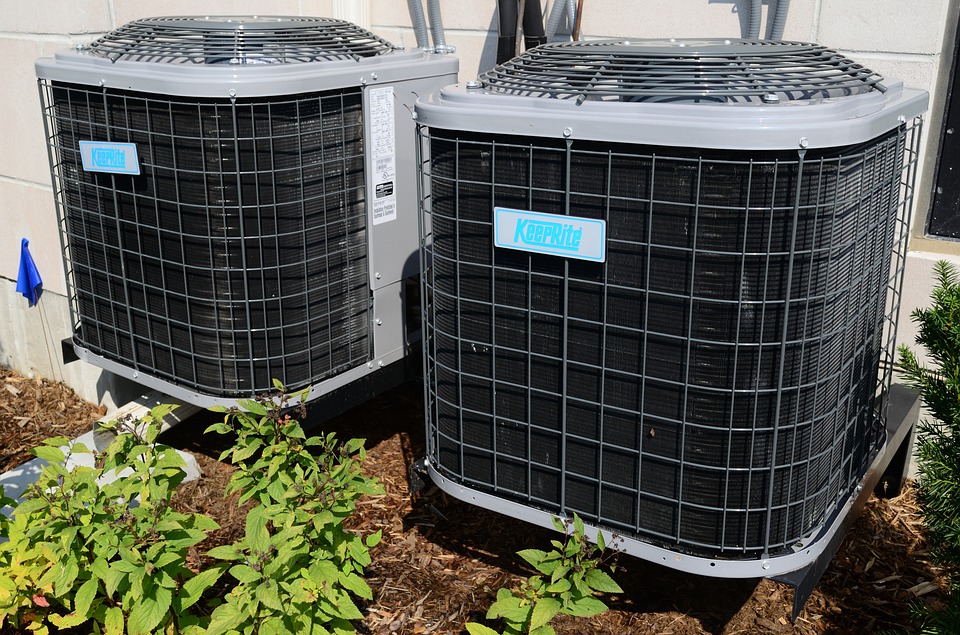Does Air Conditioning Help with Humidity?
Air conditioning systems are by far the most popular systems installed in new homes. For many people, the thought of a new system is exciting, especially when considering the benefits of having one installed. That being said, they are a long-term investment and as a result, you can lose time and money with the wrong products or an installation that doesn’t fit properly.
If you too are looking for a new AC system, consider consulting an experienced HVAC specialist such as Autumn Air.
Air conditioners can easily make your indoor space cool and pleasant in a matter of minutes. But can they also address issues with humidity? In this article, we will find the answer to this and many other questions.
The basic working of an air conditioner
Some people may believe that ACs have a cool air generator installed within them that allows them to cool any room quickly, but this is just a myth.
Air conditioning works on the principle of phase conversion, which is the conversion of material from one state of matter to another, such as when a liquid turns into a gas.
ACs generally consist of the following components:
- Evaporator: Evaporator is a coil that supports heat exchange in an AC. It is called an evaporator because the refrigerant inside the coil evaporates when it comes in contact with the warm indoor air.
- Compressor: The compressor is the outdoor component of an AC. Refrigerant emerges from the evaporator of an air conditioner as a low-pressure gas. To release the heat it has absorbed, the refrigerant must be in a higher temperature, higher pressure form. The compressor compresses the molecules of the gas-based refrigerant, increasing the pressure and temperature of the refrigerant. The heat that is currently contained in the high-temperature refrigerant flows to the cooler air outside where it could be released through the condenser because heat moves from hot to cool surfaces.
- Condenser: The condenser is also part of the outside unit of a split AC. It absorbs the heat from the refrigerant and converts the refrigerant back to liquid.
- Expansion Valve: The expansion valve is responsible for controlling the amount of refrigerant entering the evaporator.
- Refrigerants: Chlorofluorocarbons or CFCs are used as refrigerants in commercial ACs, which are simply gases that absorb heat from the room.
The evaporator coil containing the refrigerant changes its form from a liquid to a gaseous state and vice versa. When warm air passes through the evaporator coil, the refrigerant absorbs the heat and recirculates cold air into the room.
Does AC help with humidity?
The majority of current HVAC systems can regulate humidity. An evaporator coil in your HVAC system works to condense the vapor in the air, in the same way that a cold glass beads droplets on its side.
This happens when hot, damp air in your house collides with the chilly evaporator coil. The liquid is then condensed out of the air, reducing the humidity in your house. The moisture gathered by the evaporator coil drains and is subsequently sent outdoors, away from your house or workplace.
So yes, ACs do help with humidity. In fact, if you have your AC on, you will generally not require an additional dehumidifier. An excess of humidity indoors is generally a sign of air conditioning issues.
Do all ACs remove humidity?
Any air conditioner that is the right size for the amount of cooling needed will be efficient at regulating humidity. The power of your AC system must be sufficient to circulate cooled air throughout your room. Based on the size of your home and the temperature zone you reside in; a skilled HVAC specialist can assess the right size for your HVAC system.
How much humidity does an AC remove?
If you have ever gone through the manual of an air conditioner, you would find something called the Dehumidification rate. This is the AC unit’s ability to remove moisture from indoor air and is typically measured in pints per hour.
A 14,000 BTU unit, for instance, would dehumidify at a maximum rate of 4.21 Pt/h. Thus, under ideal circumstances, this AC unit can extract more than 100 pints or 15 gallons of water every day.
How to ensure that my AC removes humidity efficiently?
Change filters regularly
A blockage in the filter can potentially increase the chances of dust and debris exposure, but it also increases moisture retention, which means water can easily accumulate in the ductwork. As a result, indoor humidity levels may rise.
The refrigerant must be full
It’s important to check refrigerant levels within your AC on a regular basis. If it is running low, it may not work nearly as effectively at removing humidity and general heat from your home. When this is ignored, serious problems including frozen coils, leaks, and even a total compressor failure.
Keep lower fan speed
Lower airflow rates result in a cooler interior coil, which eliminates more moisture and sustains temperature settings more efficiently at lower speeds.
Use a thermal expansion valve
The thermal expansion valve ensures that the system only receives the amount of refrigerant required based on the temperature. A thermal expansion valve, in effect, improves the evaporator coil’s capacity to remove heat and humidity under a variety of conditions.
How does humidity affect humans?
Too much humidity can restrict our ability to perspire. There is a lot of moisture in the air when the weather is humid. As a result, the skin pores become more open and more likely to collect allergies, oil, and grime.
On the other hand, insufficient humidity can result in skin issues like eczema, acne, skin outbreaks, and allergic responses.
Is humidity removal essential for cooling?
Humidity in the air plays a key role in holding heat. Where there is high humidity, ACs have to work harder to reduce the indoor temperature. If the AC is not able to remove the humidity efficiently, the air will feel cool and moist. The humid environment also aids in the mold infestation.
Takeaway
Air conditioners are a crucial part of home comfort and care across the country, and it’s important to ensure yours is running properly at all times. But HVAC systems can be complicated, and repairs can sometimes be hard on the pocket. Therefore, it is crucial to contact a licensed and trained HVAC specialist to keep them running in good condition and perform routine maintenance to avert any long-term issues down the line.




